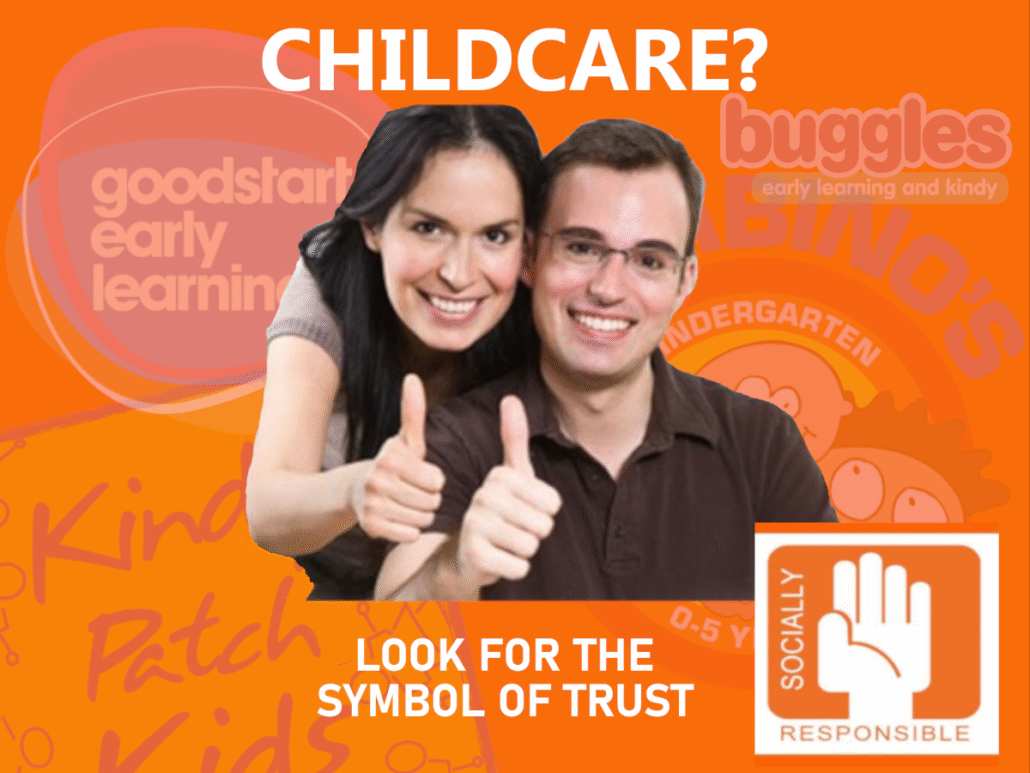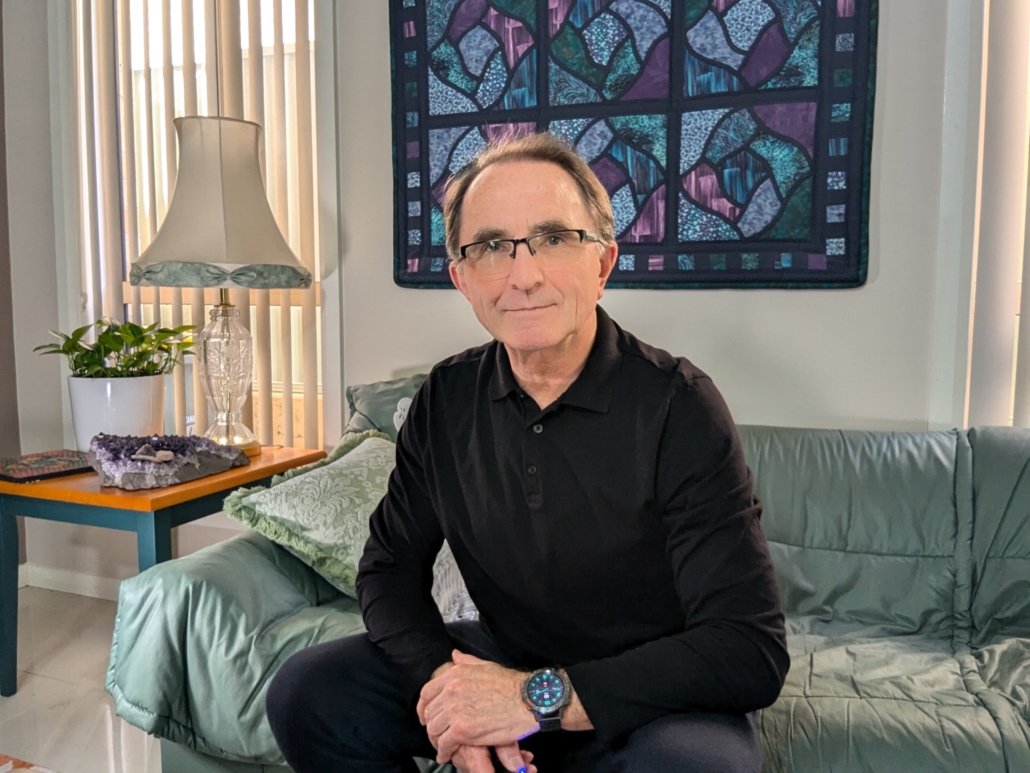The One Question That Can Reform Australia’s Childcare Sector
Real accountability won’t come from more regulation — it will come from parents and operators opening their doors to transparent, verified community feedback.

Every parent assumes their childcare centre is safe — but most have no real visibility into what happens day to day.
Inspections occur once every four years, if at all. Complaints vanish into bureaucratic processes. And parents often discover problems only after an incident — not because they weren’t paying attention, but because the system hides more than it reveals.
Australia’s childcare crisis is not an isolated policy failure. It is part of a deeper collapse in trust — the collapse of the Industrial Age model of regulation and the erosion of the moral foundations that once held communities together.
For decades, we were told that markets on one side and regulators on the other could replace the human bonds that once made childcare a trusted extension of the family. But as shocking cases of abuse and neglect emerge across the country, that illusion has fallen apart.
The sector — once the safest place outside the home — has become a mirror reflecting a deeper sickness. Profit has replaced purpose. Regulation has replaced responsibility. And trust, the glue of all social life, has been lost.
Yet the problem goes far beyond corporate behaviour or government failure. It is rooted in a misguided experiment: attempting to shape society around market principles, rather than shared human values.
A System Designed to Fail
For years, childcare has been managed like a retail service — measured by checklists and competition — yet children are not units, educators are not cost centres, and parents are not customers.
A NSW childcare centre recently received its first regulatory visit in four years. Others operate under “working towards” ratings for years while expanding. Complaints vanish into administrative voids.
And then came the wave of revelations that shocked even the most seasoned observers.
As the BBC reported:
“In the past few weeks, 2,000 children in Victoria have been urged to undergo infectious disease testing after a childcare worker was charged with the mass sexual abuse of babies; a Sydney man who worked for 60 after-school-care providers is accused of taking explicit images of children; a Queensland woman has faced court for allegedly torturing a one-year-old boy; and two workers in Sydney have been charged after a toddler was found covered in bruises.”
These are not anomalies. They are symptoms of a system where early warning signs go undetected — because real accountability does not exist.
Our top-down regulatory model is failing, and the consequences are devastating.
The Good News: We Already Know What Works
The answer is not more regulation. It is bottom-up accountability, driven by the people closest to the children: parents and educators. We know this model works, because it is widely used in all sorts of areas.
Ratings and feedback systems drive safer outcomes in:
- ride-sharing
- online commerce
- service platforms
- accommodation
- trades and healthcare providers
Feedback loops work because they reveal the truth faster — and more reliably — than any audit.
It is time to apply the same principle to childcare and other critically important social services.
When it comes to childcare, it can start with one simple question every parent can ask:
“Are you open to community feedback through PByT?”
Why PByT?
PByT isn’t another app or survey — it is the foundation of a new trust architecture that will underpin the emerging information-driven civilization long predicted by futurists like Alvin Toffler more than fifty years ago. (See The Great Signing for details.)
Rather than piling on more regulation, PByT uses verified, transparent feedback loops to rebuild accountability from the ground up — protecting children, improving workplace culture, reducing regulatory cost, and restoring trust across the entire childcare sector.
How PByT Works: A New Trust Architecture
PByT creates bottom-up accountability through:
- Verified parent experiences
- Educator workplace insights
- Early detection of behavioural or management issues
- Patterns visible before harm occurs
- Transparent community visibility into real conditions
Childcare centres that open themselves to community feedback don’t just protect children —they become the trusted leaders of the sector.
Why Childcare Operators Should Welcome Feedback
Operators who embrace transparency gain a decisive advantage:
- Higher trust and credibility
- Stronger community reputation
- Increased enrolments
- Lower risk of serious incidents
- Reduced compliance burden
- Better staff morale and retention
- Clear evidence of quality for regulators and families
In a sector where trust is everything, transparency is no longer a risk — it is the most powerful competitive advantage.
Operators who resist feedback will increasingly be seen as hiding something. Those who welcome it will lead the sector’s renewal.
Ending Government Waste
Top-down regulation doesn’t just fail children — it drains public resources.
Audits every four years produce paperwork, not safety. Meanwhile, Medicare and NDIS fraud — fuelled by similarly outdated oversight systems — costs billions annually.
A verified community feedback architecture can dramatically reduce this waste.
Money saved can be redirected to:
- lowering childcare fees
- improving educator wages
- supporting vulnerable families
Open feedback is not only morally superior — it is economically essential.
Healing Society From the Ground Up
By shifting from surveillance to transparency — and from bureaucracy to community insight — childcare centres, both for-profit and non-profit, can finally deliver what decades of reforms have promised:
- lower costs
- higher quality
- healthier workplace cultures
- stronger relationships
- real accountability
- restored trust
Repairing the moral fabric at the beginning of life strengthens society at every level. It is the most effective way to prevent the downstream harm we see in rising domestic violence, toxic workplace cultures, and the broader erosion of empathy in public life — problems that become far harder to fix once they take root.
A Simple Step Every Parent Can Take Today
Ask your childcare provider one simple question:
“Are you open to verified community feedback through PByT?”
If they say yes, you’ve already helped reform the sector. If they hesitate, ask why transparency would be a risk.
Take Action: Help Reform the Childcare Sector
Real change begins with understanding — and understanding begins with verified feedback.
Feedback that is verifiable, analyzable, and trusted returns power to where it belongs: to parents, educators, and communities.
When parents share their experiences through a trusted, transparent system, patterns become visible, risks are identified early, and centres willing to open themselves to community feedback can lead the way in rebuilding trust.
Together, this feedback becomes more than data. It becomes the voice of the community, guiding reform and restoring trust — in childcare and in society itself.
Share your feedback
→ Share Your Feedback and Help Reform the Childcare Sector
***
About PByT
PByT (Powered by Trust) is building the digital foundation for a more trustworthy world. By combining verified feedback, transparent reputation management, and open democratic participation, it empowers individuals, strengthens communities, and restores accountability to public life. PByT transforms technology into a force for truth and cooperation — proving that when people are empowered to give honest feedback and act on shared values, trust becomes the engine of real systemic change.
About George Matafonov

George Matafonov, Founder of PByT.net
George Matafonov is the founder and CEO of PByT.net, the platform launching Project Open Democracy—a bold, global initiative with a singular aim: to realize the hope of humanity and the promise of technology—peace and prosperity for all.
Of Russian heritage, George was born in China during the diaspora that followed the Russian Revolution and communist takeover. His family fled once more as communism swept through China, eventually settling in Australia.
With a background in mathematics (BSc) and decades of experience in software development and IT, George brings both analytical clarity and technical depth to the urgent challenge of democratic reinvention. As the architect of PByT, he has built more than a platform—he has outlined a new model of civic participation designed for a rapidly evolving, interconnected world.
Project Open Democracy is the culmination of his long-standing concern over the breakdown of trust, truth, and social cohesion—what he identifies as the consequence of an unholy alliance between neoliberalism and postmodernism. This diagnosis shapes the entire PByT initiative and provides the philosophical foundation for its centerpiece: the Freedom Declaration for Peace.
***


